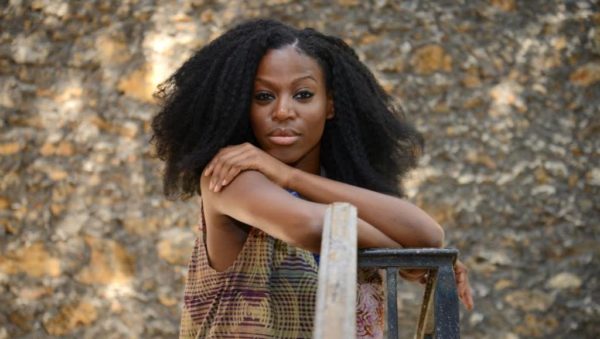
Prominent digital platform for African culture, OkayAfrica, has released its annual “100 Women” list celebrating “extraordinary women from Africa and the diaspora making waves across a wide array of industries, while driving positive impact in their communities and the world at large.” The OkayAfrica 100 Women 2018 List is spread across ten categories: STEM; literature; TV and film; sports and wellness; style and beauty; media; music;business and economics; politics and activism; and art.
In film and TV, there are Uzo Aduba of Orange Is the New Black and Gabourey Sidibe of Empire. In music: Tiwa Savage, Simi, Angelique Kidjo. In business: Isis Nyong’o, Bella Naija founder Uche Pedro. In arts: Zanele Muholi. In literature, there are ten women: Nnedi Okorafor, Leila Aboulela, Alexis Okeowo, Koleka Putuma, Marie Ndiaye, Taiye Selasi, Yrsa Daley-Ward, Glory Okon Edim, Malebo Sephodi, and Upile Chisala. Brittle Paper editor Ainehi Edoro appears not in Literature but in Media.
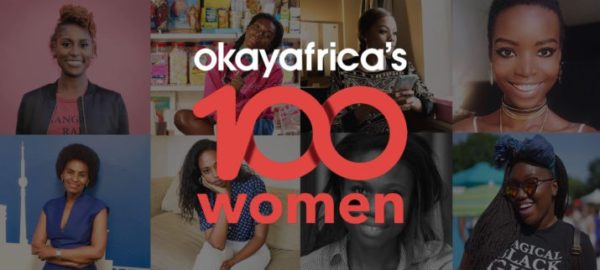
Here is part of the announcement.
OkayAfrica, the leading digital destination connecting a global audience to African culture, introduces the second annual OkayAfrica100 Women campaign to jumpstart Women’s History Month.
Each of the honorees are selected based on achievement, impact and influence within their industries and communities within the last year. The prestigious List is unveiled by way of video docuseries, a collection of inspiring written profiles, an interactive social media campaign, and a range of on-the-ground activations throughout the month. With an overarching focus on building community across bounds, each year’s honorees are creating a legacy for women of all walks to learn from and be inspired by.
Here are the profiles of the literary figures as published by OkayAfrica (Italics are Brittle Paper‘s).
Media
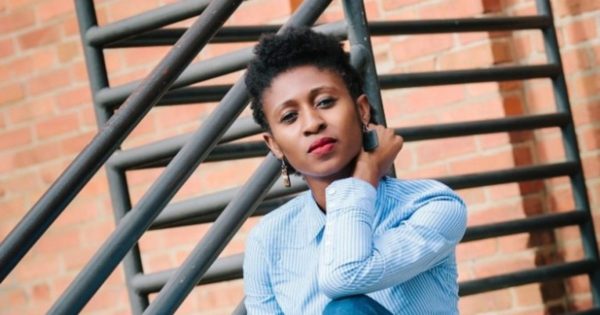
Ainehi Edoro-Glines
Writer and literary educator Ainehi Edoro-Glines is profoundly influenced by the literary icon, Chinua Achebe. Her life goal has been to bring African literature to the forefront, and more specifically to bring a fresh perspective to the study of the late Nigerian novelist’s work. Her article on Things Fall Apart is forthcoming in The Cambridge Journal of Postcolonial Literary Enquiry.
The 35-year-old—born in Akure, Nigeria but now living in Chicago—is an Assistant Professor of Literature at Marquette University where she teaches global Anglophone literature, 21st century fiction and literature in digital/social media. One of her favorite things about her career is her role in guiding students in their discovery of literature as a powerful form of expression. Beyond teaching, she is also a literary blogger and online publisher. As a teenager, Edoro loved 19th century novels with leading female characters, such as novels like George Eliot’s Middle March and Charlotte Bronte’s Jane Eyre. She drew much inspiration from watching these characters take stands against the patriarchal norms of their worlds.
Edoro credits her mother, who went from hawking oranges in the streets of Ibadan to building a successful business and single-handedly putting all seven of her children through school, with giving her the drive to succeed in her current work uplifting African voices in literature. Edoro is the founder and Editor of Brittle Paper, an online platform dedicated to African writing and literary culture, something she hopes to expand into a media empire.
Edoro has presented lectures about her work at Yale, Northwestern, The Art Institute of Chicago, University of Wisconsin, Madison and at the Kunstnernes Hus in Oslo, Norway. Her published pieces on African literature and the international literary scene can also be found in The Guardian, OkayAfrica, Chimurenga Chronic, Africa Is a Country and more.
For her own schooling, Edoro received a B.A. from Morgan State University, a historically black college, then went on to receive an M.A. from Kansas University and a Doctorate from Duke University. She is currently working on a book titled Forest Imaginaries: How African Novels Think.
Literature
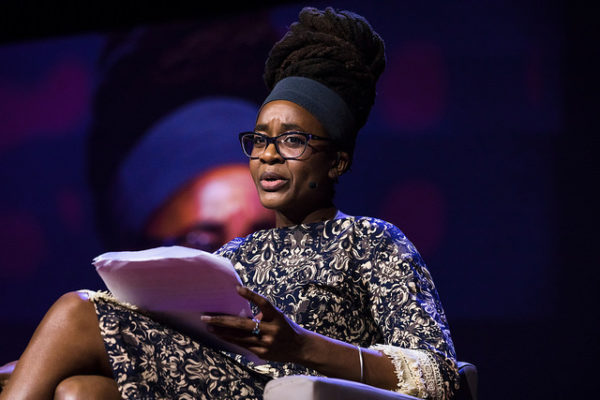
Nnedi Okorafor
Although author and University of Buffalo professor, Nnedi Okorafor, didn’t technically start writing creatively until she was 20 years old, she will tell you that she’s been a writer since the beginning of time. The Nigerian-American novelist, now 44, has penned more than 12 books centered around African-based science fiction, fantasy and magical realism. Her joy stems from writing stories about wild women, monsters, planets and moving through and messing with time. Okorafor, Cincinnati born and Chicago raised—credits her wild imagination to no one but herself. Simply put, she was a creative child who grew into a creative adult. She honed in on this creativity while receiving a BA in Rhetoric (creative writing) from the University of Illinois, U-C, a MA in Journalism from Michigan State University, another MA in Literature from the University of Illinois, Chicago, and a PhD in Literature from the University of Illinois, Chicago.
Kendrick Lamar’s “DNA” would be ideal background music for the magic she’s been stirring up. For Okorafor, who opts to move by visceral desire over planned goals, 2017 proved to be a particularly fruitful year. Not only was the accomplished scribe tapped by Marvel to write a new Black Panther storyline—the fourth comic issue will feature her Nigerian character, Ngozi, in an adventure in Lagos—but she also wrote a short story for Star Wars: From a Certain Point of View via Random House’s sci-fi imprint, Del Rey. HBO optioned her award-winning novel Who Fears Death for TV adaptation and she announced that she would be writing a third young adult novel (following behind her books Akata Witch and Akata Warrior).
That’s just the tip of the iceberg of her power moves. Currently, she is working on the final edits for her novel, Remote Control; a five-issue comic series called Antar the Black Knight; the graphic novel called LaGuardia; a secret non-fiction book; and an even larger project she hasn’t been cleared to make public yet. It is safe to say that Okorafor is a literary force to be reckoned with.
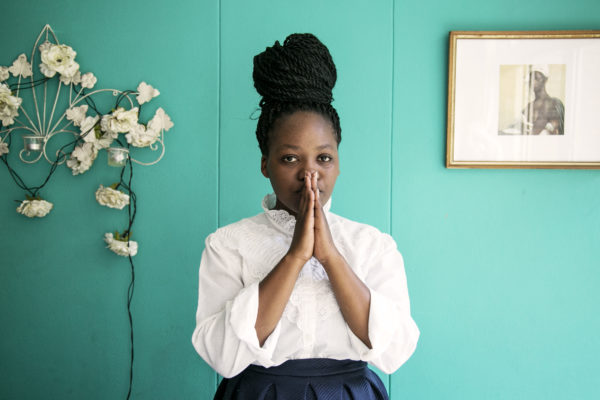
Koleka Putuma
Koleka Putuma uses her work to confront the difficult and sometimes taboo issues of Black people in South Africa. Her aim is to heal through this exploration. And she doesn’t care if she offends you in the process. “When we look at the country—but not only the country, in our families as well—you kind of realize that when you don’t grieve or when you don’t heal from something, collectively, as a group, or as people, things come back,” she told between10and5.com. “There’s a cycle. And even if you try and slip into a kind of amnesia, if you have not dealt with something, in one way or another, it’s gonna return.”
The South African poet-playwright is breaking that cycle, namely, through her debut anthology of poetry Collective Amnesia. Released last April, the book and accompanying photography by Andiswa Mkosi thread together themes of “blackness, womanhood, history, justice, visibility, trauma, healing, grief, memory, joy, sex, self-care, love and most of all the fight against amnesia,” Putuma shared with Marie Claire’s. But in keeping with the title of the collection, not everyone is ready to take that journey. In line with the amnesia Putuma writes and performs about, she has received negative feedback.
After a 2015 TEDx event in Stellenbosch, South Africa, where she performed three poems, the event organizers approached her with the intent to remove the polarizing poem “WATER” from video of her talk in order to appease the offended. Nevertheless, she persisted. In a statement to the organizers, she wrote, “I feel that suggesting to remove/cut the last poem “WATER” from my talk, in order for TEDx to upload the video, is an act of diminishing my time, craft and intellect…Through this suggestion you subject artists such as myself, who speak openly and honestly about black pain, and stench of colonialism which still lingers and breathes in our city, to artistic oppression.”
That uncompromising fearlessness is not self-sustained. From Audre Lorde and Miriam Makeba to Zethu Dlomo and Yrsa Daley-Ward, Putuma looks to her peers and predecessors for support and inspiration. When asked her favorite poem in Collective Amnesia, her response: “‘Lifeline’. It’s a list of all the women who have made me believe that it is possible to be alive and brilliant and unapologetic in my body and existence.”
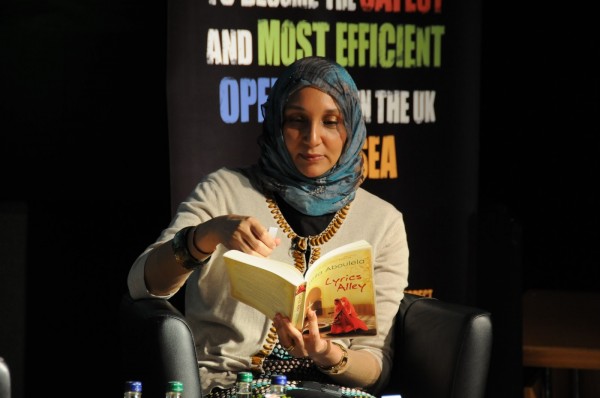
Leila Aboulela
A major move can sometimes lead to marvelous things. Take 53-year-old novelist, playwright and lecturer Leila Aboulela, for instance. She was born in Cairo to Sudanese father and Egyptian mother, then moved to Khartoum, Sudan in her infancy. She attended Khartoum American School and at the Sisters’ School, where she learned English, and would later graduate from the University of Khartoum with a degree in Economics, specializing in Statistics, then the London School of Economics with a M.Sc. and an MPhil in Statistics. However, it is when she and her family relocated more than 6000 miles away, and she learned how to articulate the emotions that came along with the move, that her knack for writing truly kicked in.
The novelist’s work—most of which was written when she moved from Sudan to Aberdeen, Scotland—includes novels and collections like The Kindness of Enemies, Lyrics Alley, Minaret, The Translator, Coloured Lights, as well as short stories that have been published in Granta, The Virginia Quarterly Review and Intangible. When she writes, she explores identity, migration, Islamic spirituality, significant political issues, and the challenges Muslims face in Europe. She writes in English, however her books and stories have been translated in nine different languages, including Arabic. As a result, her work has garnered praise all around.
Aboulela won the 2000 Caine Prize for African Writing for her short story “The Museum,” scored a nomination for the Orange Prize in 2002 for her novel The Translator, and was selected as a Notable Book of the Year by the New York Times in 2006. The latter novel was also picked up and adapted into a five-part drama serial for BBC Radio Four. Last year, Aboulela (who is currently a lecturer in Abu Dhabi) spoke at Emirates Airlines Festival of Literature in Dubai, gave talks at American University Cairo, participated in the Ilkley Literature Festival and headlined the 2017 Kaduna Book and Arts Festival. Aboulela currently lives between Aberdeen and Abu Dhabi, but it is, as always, her pen that leads the way.

Alexis Okeowo
Alexis Okeowo’s pen is always working. Avid readers of The New Yorker will recognize the staff writer’s frequent bylines—her pieces range from election season in Alabama (her home state) and media’s lack of empathy towards Somalia’s bombings, to Mona Scott-Young’s reality TV empire and the cultural impact of Issa Rae’s Insecure. She has also written for Vogue, Time, the New York Times Magazine, Bloomberg Businessweek and the Financial Times.
The now Brooklyn resident was raised in Montgomery by two Nigerian immigrants, and this upbringing instilled in her a deep ambition and sense of discipline to achieve all that she sets out to accomplish. After graduating from Princeton in 2006 with a degree in Comparative Politics and Political Theory, she spent a fellowship in Uganda writing for a local newspaper before eventually going on to do reporting in East Africa, Mexico and Lagos, Nigeria. Okeowo, 33, has spent the last 10 years of her journalism career telling the stories of people who, she says, would otherwise go unnoticed, and exposing abuses of power to help protect vulnerable communities. The depth and breadth of her roots within the diaspora are integral to the work she produces both online and in print.
Beyond journalism, Okeowo is an accomplished author who published her first book, A Moonless, Starless Sky: Ordinary Women and Men Fighting Extremism in Africa, last year to much acclaim. While she doesn’t harp on the rigid idea of setting long-term goals, her focus going forward will be nestled in various long-term reporting and screenwriting projects. Ask Okeowo what makes a powerful woman and she will tell you this: such a woman is unafraid to go after what she wants, and uses her intelligence and talent to make some kind of meaningful impact, ideally for the good of others. She personifies this very power, and harnesses it to reach back to others as she climbs. “In the end, all African women have is each other,” she says. “So we have to support each other and lift each other up. We’re the future, after all.”
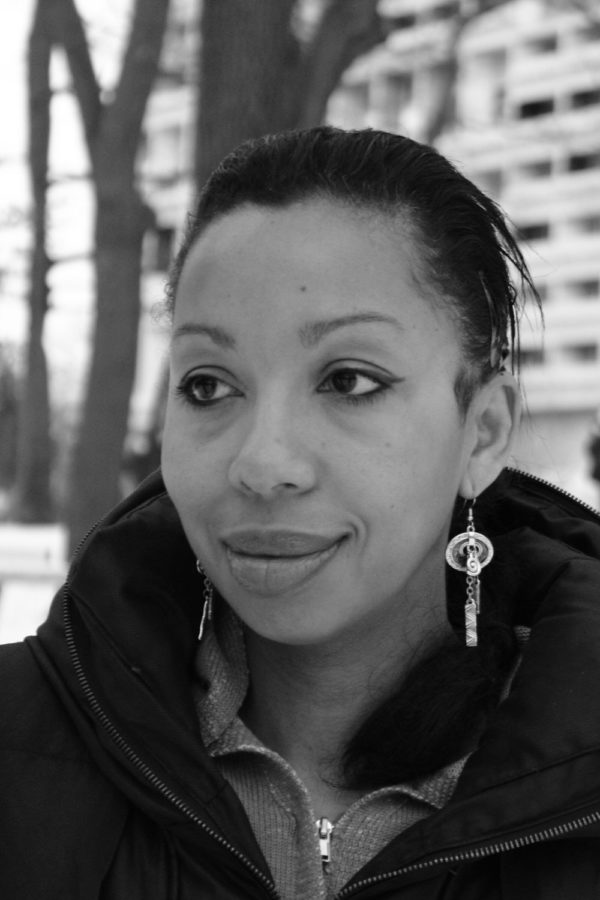
Marie Ndiaye
Marie NDiaye, a novelist and playwright, was born to a French mother and Senegalese father in Pithiviers, France. When her father headed back to Senegal on his own, NDiaye and her mother remained in the French suburbs. She later went on to study linguistics at the Sorbonne, however, her writing gifts came very early in life. NDiaye started writing at around 12 years old and hit the ground running five years later, publishing her first book Quant Au Riche Avenir (or The Rich Future) at 17 after she was discovered by Jerome Lindon, the founder of Editions de Minuit.
NDiaye, 50, has since racked up an impressive collection of books: Trois Femmes Puissantes (Three Strong Women), Ladivine: A Novel, Self-Portrait in Green, En Famille, La Sorcière, All My Friends, Rosie Carpe, Coração Apertado, Hilda and many more. The novelist’s tales often center around female characters who are hard pills to swallow—women who grapple with race and assimilation in Western society and who take on controversial roles within their romantic, familial and social relationships.
While not all of her material has been heralded by English-speaking audiences as immediately as Francophone audiences, her psychological drama, My Heart Hemmed In—the translated version of her 2007 novel Mon cœur a l’etroit—was released in 2017 to international fanfare. The same sort of gravity surrounds her numerous accolades. In addition to being awarded the prestigious Prix Femina literary prize for her novel Rosie Carpe in 2001 and winning the Prix-Goncourt (a.k.a. France’s most prestigious literary award) for Three Strong Women in 2009, NDiaye is the only living female playwright to have a play (Papa doit manger) included in the Comédie-Française repertoire. NDiaye now resides in Berlin, where she continues to churn out works that will etch her literary presence in stone.
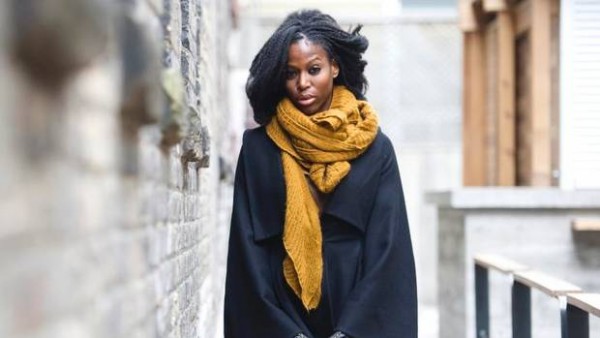
Taiye Selasi
Taiye Selasi is what one might call a global citizen. Her mother was born in England, raised in Nigeria and currently lives in Ghana. Her father was born in Ghana (when it was still a British colony called the Gold Coast) and has lived in Saudi Arabia for more than 30 years. Selasi, herself, was born in London and raised in Brookline, Massachusetts along with her twin sister. In the past, when asked about her origins, Selasi would use humor to mask not knowing the proper response. She has since made peace with the feeling of not being “from” anywhere; she is decidedly a local in many places that feel like home. “My experience is where I’m from,” she said during her 2015 TED Talk. The 38-year-old writer, photographer and self-described explorer graduated from Yale University with a B.A. in American Studies and holds a Master’s in Philosophy in International Relations from Oxford University. Currently based in Rome and Berlin, Selasi has stretched out into just as many artforms as she has locations honoring her multi-local experience and community exploration in her work.
She has a best-selling debut novel, Ghana Must Go, which mirrors her own story as it follows a family who, after dismantling in tragedy, must use the fragments to reimagine itself in a new, still beautiful way. Her writings have been featured in the New York Times’ T Magazine, Evening Standard, and the LiP magazine, where she published the 2005 essay “Bye-Bye Babar: Or, What is an Afropolitan?,” the article that first thrust her name into cultural conversations. Her short story “The Sex Life of African Girls” was published by Granta before being chosen for their Best American Short Stories of 2012. She penned a play that was later produced in a small theater by Toni Morrison’s niece, Dr. Avery Willis. And in 2012 she completed a multimedia project called “2154,” where she set out to photograph and film 20-somethings in all 54 African countries.
Currently, the ambitious creative spends her time headlining events and conferences as a keynote speaker while working on a second novel. And of course, she continues to chase global inspiration wherever she considers herself a local.
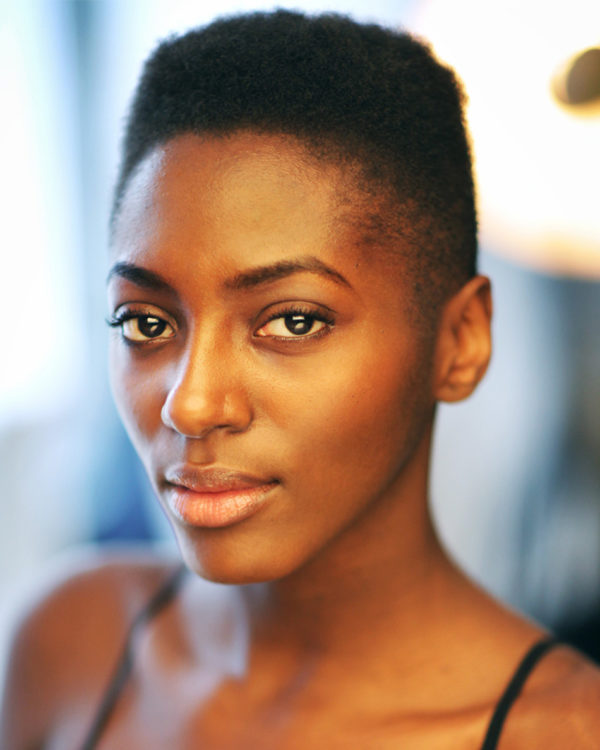
Yrsa Daley-Ward
Yrsa Daley-Ward does it all. Seriously. As a writer, poet, actress, model and LGBTQ advocate, the multi-hyphenate has attracted admirers from all sides, whether they are looking at her face in photos, hearing her voice at open mics, or reading her delicate words in their hands. She spent a good chunk of her late teens and early 20s modeling for the likes of Apple, Topshop, Estée Lauder and Nike, but she will tell you that deep down, she was always a writer. Born to a Jamaican mother and a Nigerian father, Daley-Ward was raised in Chorley, North of England. For a time, she lived with her religiously strict Seventh Day Adventist grandparents, before returning home to her mother and brother. As she grew, her battles with the expectations placed on her as a woman lit a fire of rebellion within her. Writing helped her articulate those unfiltered thoughts.
Her medium slowly blossomed from Instagram, where she would post square snippets of her strung-together words, to Penguin Books, where she re-released her debut collection of poetry. The well-received Bone documents her religious upbringing, sexuality and struggles with mental health. Just months after its 2017 release, she announced that The Terrible, a memoir written in both verse and prose, would arrive in the summer of 2018. This book will center around her childhood in England, losing herself throughout all the “terrible” moments of her adolescence—the damage, pain and fear—and later finding her voice and witnessing the joy.
Aside from this work, Daley-Ward released a collection of short stories called On Snakes and Other Stories in 2013, and has acting credits in the UK TV series Shameless and films David is Dying (SAR Productions), Death Race (Universal Pictures), Gun in London’s Tricycle Theatre and The Cook (C-Films). No matter the medium, Daley-Ward is dead-set on excelling in them all and is a wonder to watch.
In 1996, Oprah Winfrey lit a fire in casual readers with her now famous book club. It’s 33-year-old Glory Okon Edim’s turn to do the same for her digital community of book lovers. Edim’s “Well-Read Black Girl” is a curated newsletter and a Brooklyn-based book club dedicated to readers and writers of color, celebrating the uniqueness of black literature and sisterhood.
Founded in 2015, Edim’s brainchild now boasts more than 50,000 members on Instagram, Twitter and Facebook. Monthly meetings almost always sell out, drawing in groups of 30 to 35 people at a time. The WRBG meetups have covered influential reads such as Ta-Nehisi Coates’ Between the World and Me, Brit Bennett’s The Mothers and Jesmyn Ward’s Sing, Unburied, Sing. The club has also hosted readings with Naomi Jackson (The Star Side of Bird Hill), Nicole Dennis-Benn (Here Comes The Sun), Margo Jefferson (Negroland), Angela Flournoy (The Turner House), Yaa Gyasi (Homegoing) and Nicole Blades (The Thunder Beneath Us).
When she’s not nose-deep in a book or managing WRBG, the Arlington, Virginia native who graduated from the Howard University School of Communications with a B.A. in Broadcast Journalism, works as a Publishing Outreach Specialist at Kickstarter. The very same platform on which she successfully funded the inaugural 2017 Well-Read Black Girl Writers’ Conference and Festival. Prior to her Kickstarter position, Edim worked as a creative strategist at startups and cultural institutions such as the Webby Awards and the New York Foundation for the Arts. To top off all of her recent successes, Edim will be working on an anthology book, Well-Read Black Girl: Finding Our Stories, Discovering Ourselves, throughout this year. The collection of writings will focus on the first times black women authors saw themselves represented in the literature they read. The literature buff is well on track to making 2018 a standout year.


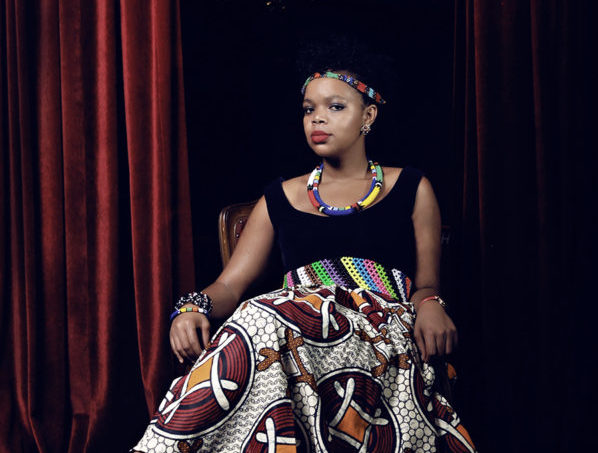







OkayAfrica’s 100 Women 2018 List | Nnedi Okorafor, Taiye Selasi, Ainehi Edoro, Leila Aboulela – Afrikáná March 02, 2018 03:37
[…] OkayAfrica’s 100 Women 2018 List | Nnedi Okorafor, Taiye Selasi, Ainehi Edoro, Leila Aboulela […]